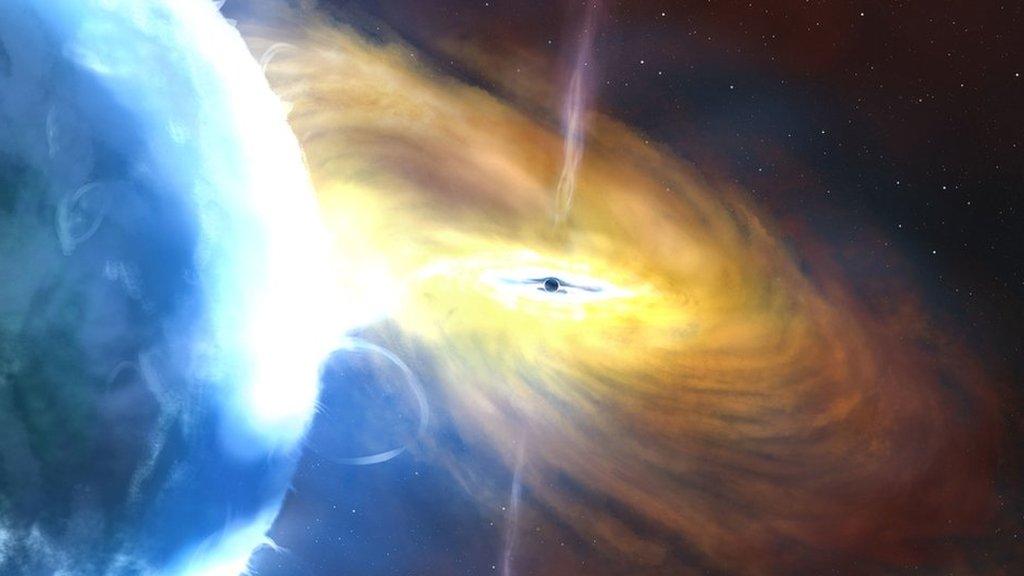Astronomer runs seven marathons in a week for MS charity
- Published

Dr Philip Wiseman set off from Gloucestershire and took on a route through Hampshire before ending in the capital on Sunday
An astronomer who set out to run seven marathons in a week completed his charity challenge at Sunday's London Marathon.
Dr Philip Wiseman, who works at the University of Southampton, raised money for the MS Society.
His mum, Ann Wiseman, has been living with progressive multiple sclerosis for nearly 20 years.
Dr Wiseman set off from Gloucestershire and took on a route through Hampshire before ending in the capital.

Dr Philip Wiseman ran each marathon in a different eye-catching outfit
The 31-year-old, from Chandler's Ford, Hampshire, set a fundraising target of £7,777.
By Monday morning, he had raised more than £11,500 after completing his seventh marathon of the week in three hours, 51 minutes and 41 seconds.
Dr Wiseman praised "incredible support" along the 26.2-mile route and said he was "very proud" of what he had achieved.
He said, having completed marathons before, he needed his challenge to "be something bigger than that".
The winding route took in places that are meaningful to him - including Gloucestershire, his childhood home, and Southampton, where his parents met in the late 1970s as University of Southampton students.
Other notable places along the way included Sutton in south-west London, where his mum grew up.

Dr Wiseman's mum Ann Wiseman has been living with progressive multiple sclerosis for nearly 20 years (picture from previous Brighton Marathon)
Running through Chandler's Ford on Thursday, Dr Wiseman was joined by members of his running club, the Chandler's Ford Swifts.
The research fellow in astrophysics led a team at the university who analysed an explosion, known as AT2021lwx which took place nearly eight billion light years away.
The explosion has lasted more than three years, much longer than most supernovae which are usually only visibly bright for a few months.

Follow BBC South on Facebook, external, X, external, or Instagram, external. Send your story ideas to south.newsonline@bbc.co.uk or via WhatsApp on 0808 100 2240, external.
- Published16 April 2024

- Published15 May 2023

- Published12 May 2023
